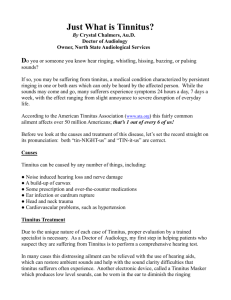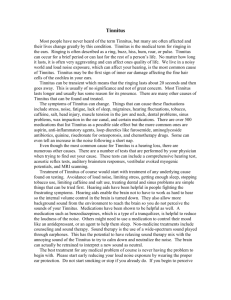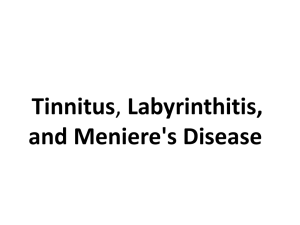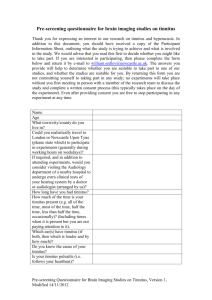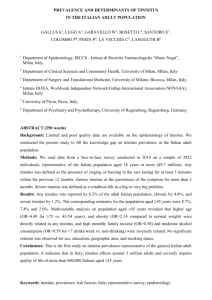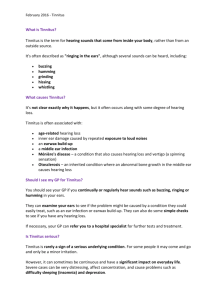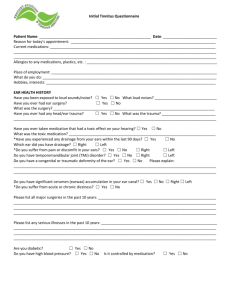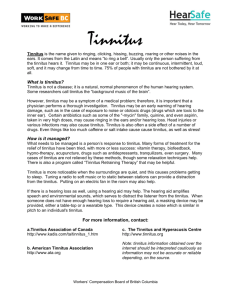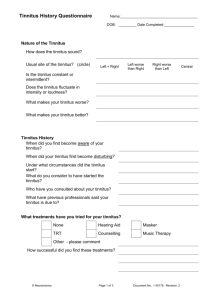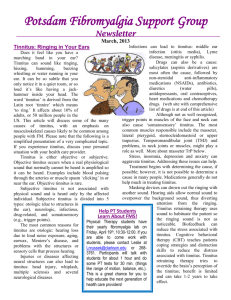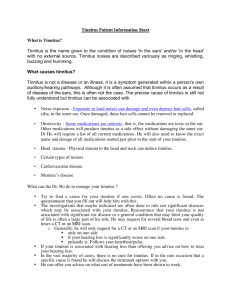What is Tinnitus? Tinnitus is the perception of sound within the
advertisement
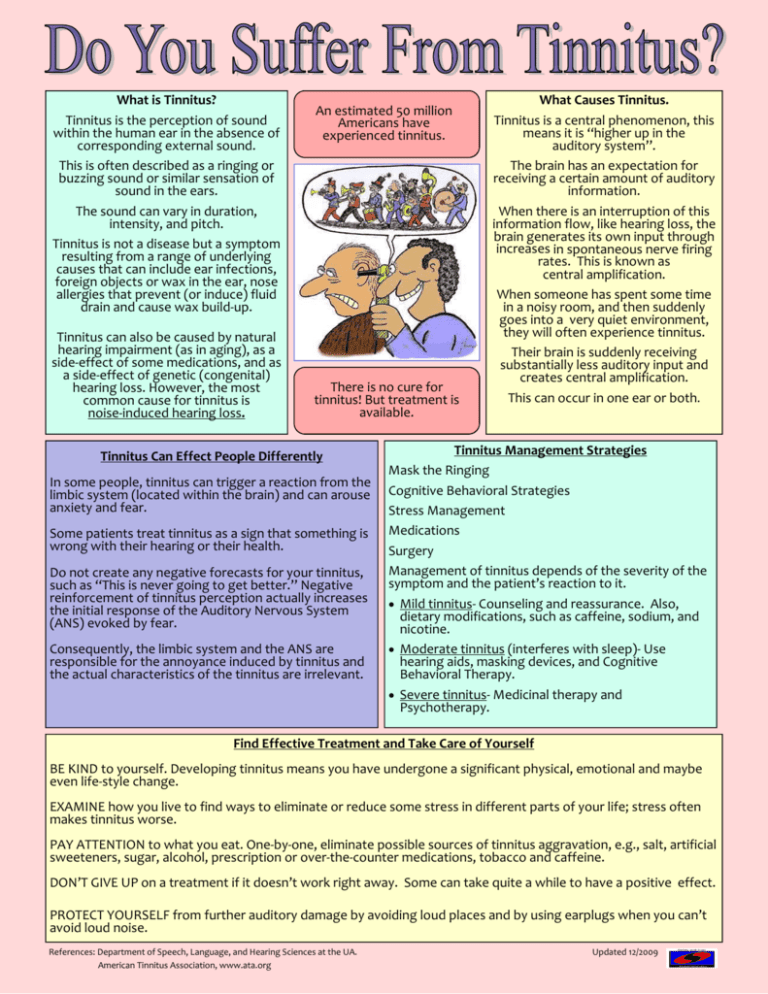
What is Tinnitus? Tinnitus is the perception of sound within the human ear in the absence of corresponding external sound. This is often described as a ringing or buzzing sound or similar sensation of sound in the ears. The sound can vary in duration, intensity, and pitch. Tinnitus is not a disease but a symptom resulting from a range of underlying causes that can include ear infections, foreign objects or wax in the ear, nose allergies that prevent (or induce) fluid drain and cause wax build‐up. Tinnitus can also be caused by natural hearing impairment (as in aging), as a side‐effect of some medications, and as a side‐effect of genetic (congenital) hearing loss. However, the most common cause for tinnitus is noise‐induced hearing loss. An estimated 50 million Americans have experienced tinnitus. There is no cure for tinnitus! But treatment is available. What Causes Tinnitus. Tinnitus is a central phenomenon, this means it is “higher up in the auditory system”. The brain has an expectation for receiving a certain amount of auditory information. When there is an interruption of this information flow, like hearing loss, the brain generates its own input through increases in spontaneous nerve firing rates. This is known as central amplification. When someone has spent some time in a noisy room, and then suddenly goes into a very quiet environment, they will often experience tinnitus. Their brain is suddenly receiving substantially less auditory input and creates central amplification. This can occur in one ear or both. Tinnitus Management Strategies Mask the Ringing In some people, tinnitus can trigger a reaction from the limbic system (located within the brain) and can arouse Cognitive Behavioral Strategies anxiety and fear. Stress Management Some patients treat tinnitus as a sign that something is Medications wrong with their hearing or their health. Surgery Management of tinnitus depends of the severity of the Do not create any negative forecasts for your tinnitus, symptom and the patient’s reaction to it. such as “This is never going to get better.” Negative reinforcement of tinnitus perception actually increases Mild tinnitus‐ Counseling and reassurance. Also, the initial response of the Auditory Nervous System dietary modifications, such as caffeine, sodium, and (ANS) evoked by fear. nicotine. Tinnitus Can Effect People Differently Consequently, the limbic system and the ANS are responsible for the annoyance induced by tinnitus and the actual characteristics of the tinnitus are irrelevant. Moderate tinnitus (interferes with sleep)‐ Use hearing aids, masking devices, and Cognitive Behavioral Therapy. Severe tinnitus‐ Medicinal therapy and Psychotherapy. Find Effective Treatment and Take Care of Yourself BE KIND to yourself. Developing tinnitus means you have undergone a significant physical, emotional and maybe even life‐style change. EXAMINE how you live to find ways to eliminate or reduce some stress in different parts of your life; stress often makes tinnitus worse. PAY ATTENTION to what you eat. One‐by‐one, eliminate possible sources of tinnitus aggravation, e.g., salt, artificial sweeteners, sugar, alcohol, prescription or over‐the‐counter medications, tobacco and caffeine. DON’T GIVE UP on a treatment if it doesn’t work right away. Some can take quite a while to have a positive effect. PROTECT YOURSELF from further auditory damage by avoiding loud places and by using earplugs when you can’t avoid loud noise. References: Department of Speech, Language, and Hearing Sciences at the UA. Updated 12/2009 American Tinnitus Association, www.ata.org
